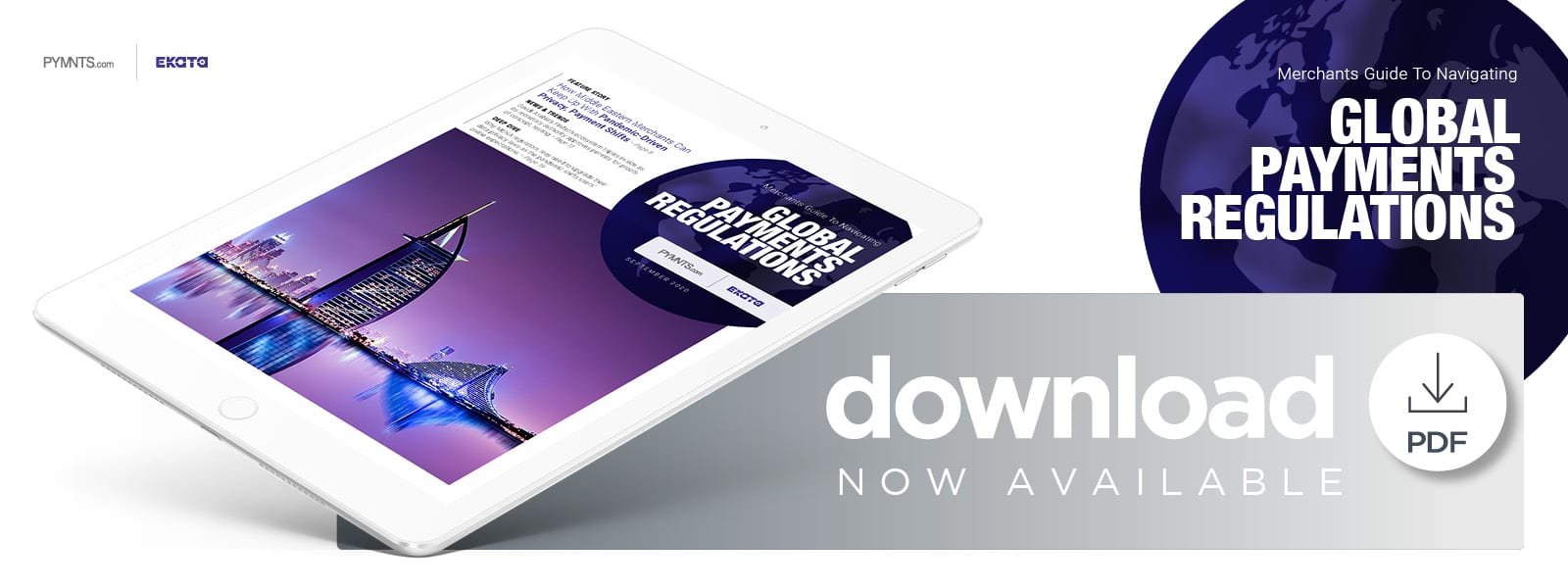How Middle Eastern Merchants Can Keep Up With Pandemic-Driven Privacy, Payment Shifts

Consumers around the globe have moved their purchasing online during the pandemic, and those in the Middle East and North Africa (MENA) region are no exception.
The region’s financial institutions (FIs) and merchants have needed to work swiftly to support unprecedented levels of digital payment and shopping growth.
The true change merchants are facing is not in trying to stay on top of a spike in online users. Consumers have been steadily moving to eCommerce and online banking platforms for almost a decade, after all. What has shifted most during the pandemic are consumers’ views on the data privacy and online security standards attached to these digital transactions, Oren Paran, managing director for Israeli retail startup firm Retail Innovation Club, explained in an interview with PYMNTS.
“People were very careful about security and privacy,” Paran said. “I think the pandemic lowered this level because [many] more people are now using online shopping than they did before.”
The historic wariness regarding online transactions has continued to dissipate rapidly over the past few months, David Macadam, CEO of retail consortium The Middle East Council of Shopping Centres & Retailers (MECSC), said in a separate PYMNTS interview. This does not mean that consumers’ online data privacy and security concerns do not remain high, he stated, but that the impetus is now on the merchants facilitating digital transactions to meet consumers’ cybersecurity expectations. Regulators are also looking more closely at the authentication measures attached to online payments as they continue to jump in volume, meaning merchants must keep pace with new compliance requirements as well as shifting consumer perceptions.
Online Payments Drive Privacy Concerns
Middle Eastern consumers’ jump to online channels during the pandemic follows global commerce and banking trends, but Macadam explained that the region’s shift has been more dramatic than in other areas. He noted that online shopping’s market penetration was hovering at roughly 3 percent to 4 percent prior to the pandemic, but it is now around 6 percent. Consumers are also beginning to adopt new payment methods, eschewing cash for debit cards, credit cards or mobile wallets that can be used for brick-and-mortar as well as online transactions.
“This region, I think, has adopted the use of credit cards much more strongly in the last six months than it has in the last five years,” Macadam said.
Paran said that this type of growth can also be seen in Israel, with consumers exploring alternative payment methods like mobile wallets or touchless payments that can minimize physical contact at brick-and-mortar stores. This is also a significant departure from the pre-pandemic payment normal, he stated.
“The majority of the physical stores are still operating and looking for ways to minimize physical contact and [to] transfer the user experience to become as seamless as possible,” Paran said. “One of the main interaction points [is] the checkout, where we are seeing a surge in contactless payments, [a method that] is still very premature in Israel compared with other markets worldwide.”
These large-scale shifts in consumers’ preferences and capabilities regarding payments and bank account access have therefore prompted many to view online banking and payments with greater scrutiny. They also illustrate the dangers that can befall consumers and merchants alike when pandemic-driven online usage outstrips current rules. Israeli lawmakers have not made significant upgrades to the country’s data privacy law since 1981, for example, which could open the market to more fraud as its merchants race to support multiple payment methods on various channels.
“It is definitely getting more and more clear that [merchants] need to [support] several [payment methods],” Paran said. “You need to open your gateway to every possible transaction [type] that someone has decided they want to do.”
Other regulators are working to keep pace with a pandemic-driven focus on online privacy standards. Officials in Dubai recently revamped their regulations to ease merchants’ payment frustrations and to keep consumers’ transactions seamless and secure. The nation’s rule sets new standards for online entities’ treatment and storage of digital data that largely mirror those in the EU and U.K. under the GDPR. Dubai’s merchants will now be expected to more strictly safeguard much of their customers’ information, and this is likely to occur within many other Middle Eastern countries in the near future.
Joining the Global Open Banking Push
Regulators in the United Arab Emirates and Saudi Arabia are also looking at online data protections in their markets, with these countries’ merchants waiting to see how any shifts will change consumer interactions and payment data acceptance. This means Middle Eastern merchants — as well as those operating worldwide — should brace for long-term, systemic shifts in commerce and payments. Doing so successfully will rely on how knowledgeable their payment partners are, Macadam advised.
“I think it is up to the credit card companies to pay attention to the retailers and help everyone understand what is best for them,” Macadam said.
Making sure merchants are well-advised and ready to confront upcoming open banking changes is critical as the pandemic pushes these developments to the next level in numerous global markets. Merchants, their payment providers and their regulators must keep up.
